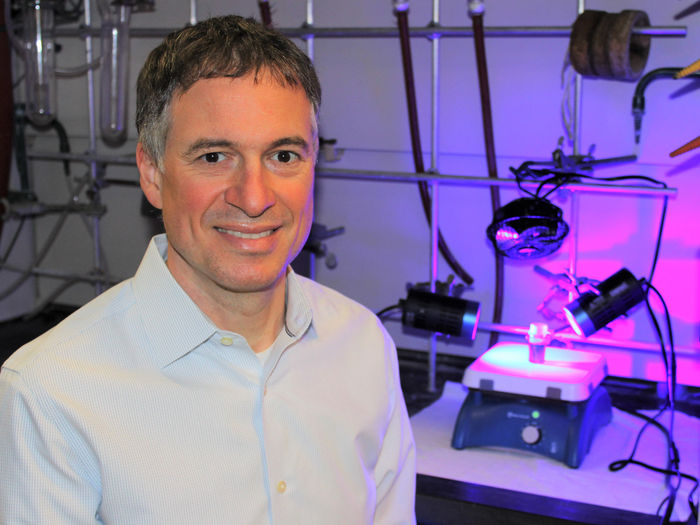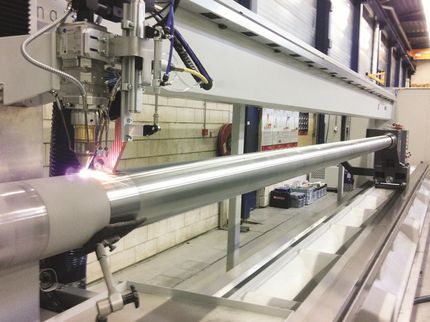A smarter, safer way to reduce corrosion
Royal Society award for research breakthrough
Better protection against rust and corrosion is a step closer thanks to a breakthrough by a Swansea University research team, who have discovered a safer, smarter way of tackling the problem.
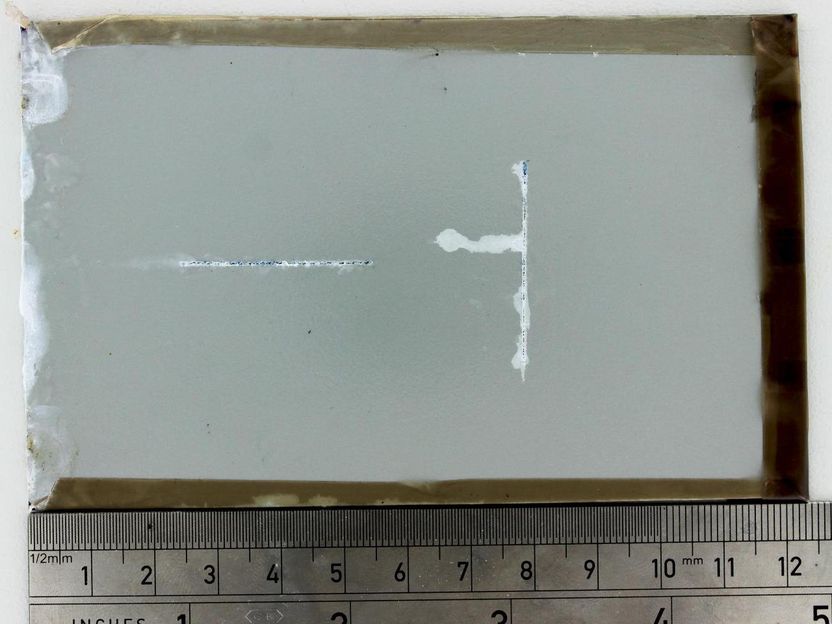
A steel panel with the new anti-corrosion treatment, after being exposed to hundreds of hours of salt spray, and showing virtually no signs of corrosion.
Swansea University
Their work has won the Brian Mercer Feasibility Award, presented by the Royal Society, the UK's independent science academy, which promotes excellence in science.
The award, worth £30,000, comes as the UK steel industry is emerging from a period of turbulence, and illustrates how research and innovation is helping to turn the industry into a leading producer of high-value steel products.
The team's work also won the Materials Science Venture Prize, provided by The Worshipful Company of Armourers and Brasiers, and presented to the team in June at Cambridge University.
The discovery provides a boost for the steel industry, helping it to retain its focus on high-quality steel meeting the very highest standards of performance and safety. The breakthrough is of particular importance because the industry needs an alternative to the corrosion inhibitor most widely used at present, hexavalent chromate, which will be banned across the European Union from 2019.
Corrosion inhibitors are commonly used in a wide range of sectors, including:
- coated steel products used to construct industrial
- commercial and other buildings
- aerospace and aircraft
- the car industry
Led by Professor Geraint Williams, the team, based at the University's College of Engineering, includes doctorate student Patrick Dodds, who made the discovery. Dodds discovered a material and manufacturing process for a smart release coating which outperforms hexavalent chromate in laboratory tests.
The new method involves a stored reservoir of corrosion inhibitor. It works by channelling aggressive electrolyte anions into the coating, triggering the release of the inhibitor 'on demand', thus preventing corrosion.
The product has been tested with salt spray, the standard test for corrosion, outperforming hexavalent chromate.
Researchers used a scanning Kelvin probe, specially built by the team, which can detect the state of the metal beneath a coating without touching it. This allowed them to test different products much more quickly, with each test taking around 24 hours, rather than 500 hours as was previously the case.
The discovery could lead to the product taking a significant slice of a multi-million pound market. The market for coiled coated steel is potentially worth £3 billion per year in Europe alone. Initial discussions with industry have been extremely positive.
In figures: new method of tackling corrosion
- Lasts 12 times as long in preventing the onset of corrosion
- 20 times as fast - the tests conducted at Swansea, using a specially-built probe
- £3 billion - the market for coiled coated steel in Europe alone
Professor Geraint Williams, team leader and corrosion expert at Swansea University:
"This is a significant breakthrough, showing a smarter and safer way of reducing corrosion. The new product is environmentally sound, economical and outperforms the market leader in laboratory tests. It illustrates that Swansea, with its close links between research and industry, remains at the heart of innovation in steel"
Patrick Dodds of Tata Steel, a doctoral researcher at Swansea University, said:
"The system has been shown to prevent the onset of corrosion for over 24 hours compared to less than 2 hours for the current market leader. We have also been able to demonstrate that the rate of corrosion can be slowed down significantly once it has started. This is by far the best result seen in 15 years of research on this topic."
Most read news
Topics
Organizations
Other news from the department science
These products might interest you
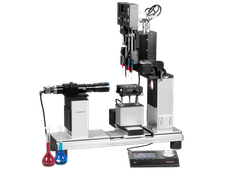
OCA 200 by DataPhysics
Using contact angle meter to comprehensively characterise wetting behaviour, solids, and liquids
With its intuitive software and as a modular system, the OCA 200 answers to all customers’ needs
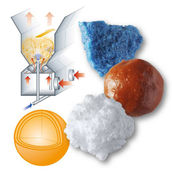
Tailor-made products for specific applications by IPC Process Center
Granulates and pellets - we develop and manufacture the perfect solution for you
Agglomeration of powders, pelletising of powders and fluids, coating with melts and polymers
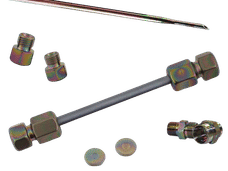
Dursan by SilcoTek
Innovative coating revolutionizes LC analysis
Stainless steel components with the performance of PEEK - inert, robust and cost-effective

Get the chemical industry in your inbox
By submitting this form you agree that LUMITOS AG will send you the newsletter(s) selected above by email. Your data will not be passed on to third parties. Your data will be stored and processed in accordance with our data protection regulations. LUMITOS may contact you by email for the purpose of advertising or market and opinion surveys. You can revoke your consent at any time without giving reasons to LUMITOS AG, Ernst-Augustin-Str. 2, 12489 Berlin, Germany or by e-mail at revoke@lumitos.com with effect for the future. In addition, each email contains a link to unsubscribe from the corresponding newsletter.
Most read news
More news from our other portals
Last viewed contents
Hibonite
Category:Alpha_blockers
Common_ethanol_fuel_mixtures
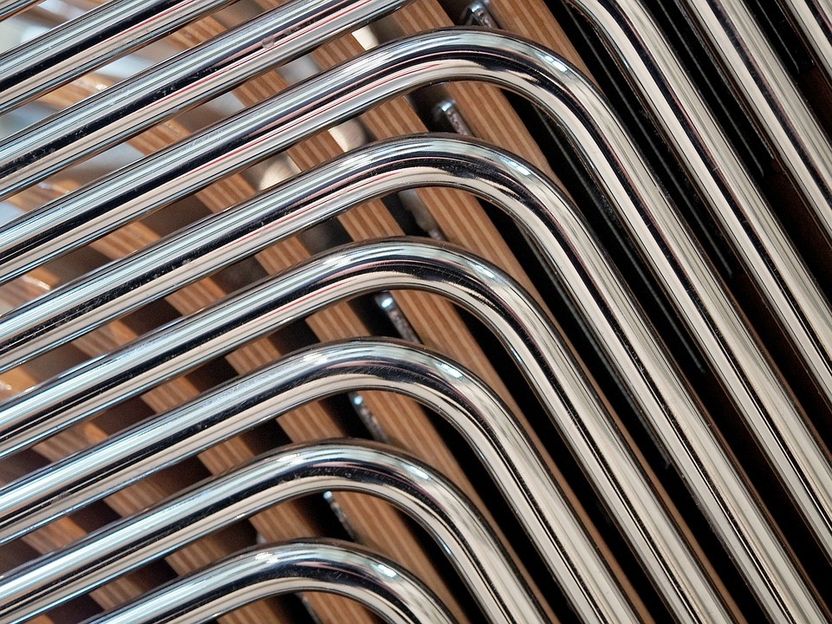
Atomistic simulations go the distance on metal strength
Vladimir_Ipatieff
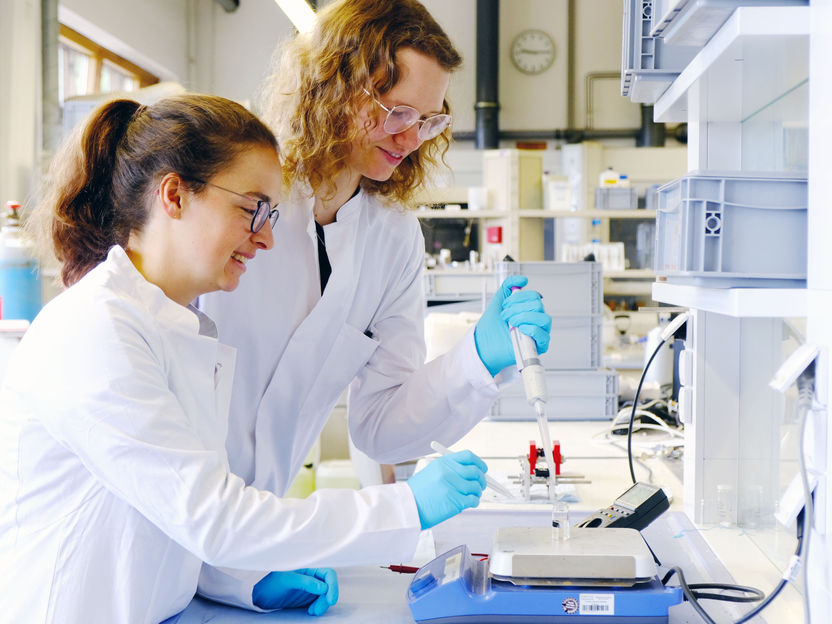
Muscles for soft robots inspired by nature - Materials researchers significantly improve the performance of hydrogel actuators
BASF steps up contract manufacturing activities
Gaylussite
